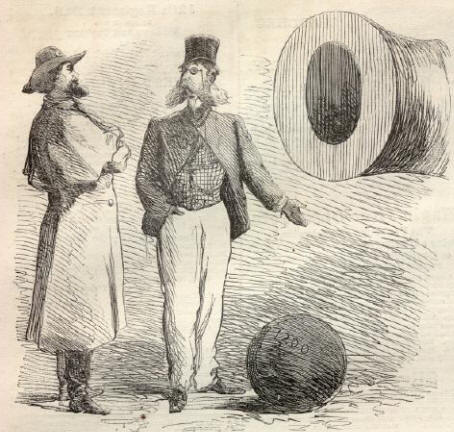From the April 2, 1864 issue of Harper’s Weekly at Son of the South:
PRESIDENT LINCOLN ON THE RIGHTS OF LABOR.
A Committee of the New York Workingmen’s Democratic Republican Association waited upon the President a few days since, to inform him that their Association had elected him an honorary member. The President accepted the honor with thanks, and said the Association evidently comprehended that the existing rebellion meant more, and tended to more, than the perpetuation of African slavery; that it was, in fact, a war upon the rights of working people. In concluding, Mr. Lincoln said:
“The most notable feature of the disturbance in your city last summer was the hanging of some working people by other working people. It should never be so. The strongest bond of human sympathy outside of the family relation should be one uniting all working people of all nations, tongues, and kindreds; nor should this lead to a war on property or owners of property. Property is the fruit of labor. Property is desirable—is a positive good in the world. That some should be rich shows that others may become rich, and hence is just encouragement to industry and enterprise. Let not him who is houseless pull down the house of another, but let him labor diligently and build one for himself, thus by example assuring that his own shall be safe from violence when built.”
At the conclusion of the President’s remarks he handed a copy of his speech to Mr. Still, the Chairman, who, upon receiving it, said:
“On behalf of the Committee, Mr. President, I thank you, and I will only add, that it is the general desire of the working-men of the United States that the next President of the United States shall be from Springfield, Illinois, and that his name be Abram Lincoln.”
For which the President answered, “I am very much obliged to you, gentlemen.”
You can read all of President Lincoln’s March 21, 1864 remarks to the workingmen here. He quoted from a speech to Congress in 1861 in which he stated that “Labor is prior to, and independent of, capital. Capital is only the fruit of labor, and could never have existed if labor had not first existed. Labor is the superior of capital, and deserves much the higher consideration. Capital has its rights, which are as worthy of protection as any other rights. Nor is it denied that there is, and probably always will be, a relation between capital and labor, producing mutual benefits.” President Lincoln encouraged the idea of laborers working and saving enough to buy their own land and capital.
A cartoon in the same issue reflected pride in America’s increasing manufacturing prowess, which probably depended on both labor and capital:

